Mastering Binance & Coinbase APIs for Automated Crypto Trading
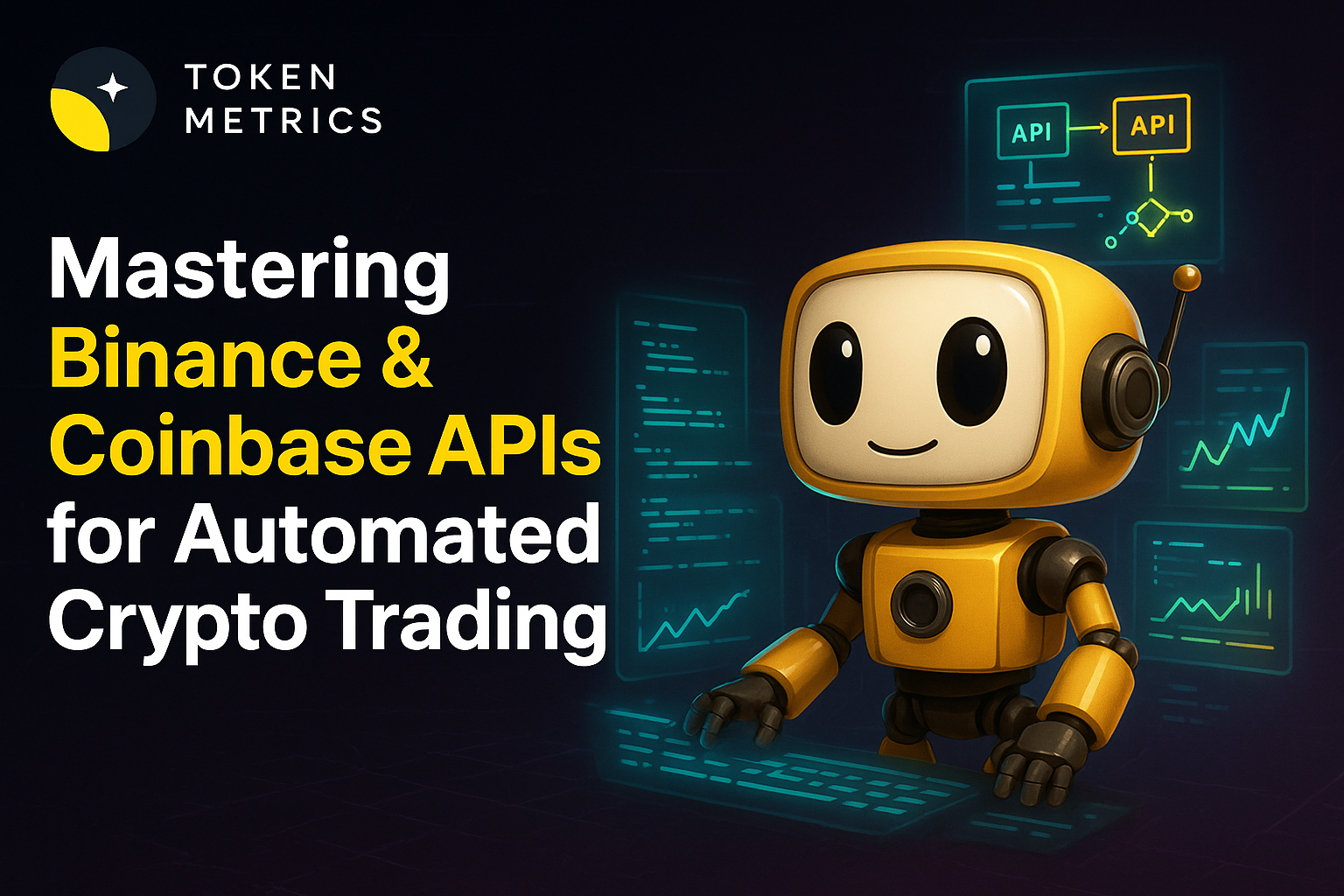
Automating crypto trading with APIs is revolutionizing how traders and developers interact with digital asset markets. If you've ever wondered how to connect directly to exchanges like Binance and Coinbase, automate your strategies, or build your own trading bots, understanding their APIs is the crucial first step. This guide unpacks the essentials of using the Binance and Coinbase APIs for automated crypto trading—explaining the technology, potential use cases, and important considerations for getting started.
What Are Crypto Trading APIs?
APIs, or Application Programming Interfaces, enable software to interact directly with external services. Within cryptocurrency trading, APIs provide a standardized way for users and programs to connect with exchange platforms, fetch market data, execute trades, manage portfolios, and access account information programmatically.
- Market Data: Real-time and historical prices, order books, trade volume, and related metrics.
- Order Placement: Automated buying/selling, stop-loss, take-profit, and other order types.
- Account Management: Retrieve balances, view transaction history, or monitor active positions and orders.
This seamless integration supports the development of sophisticated trading strategies, algorithmic trading bots, portfolio trackers, and research analytics. The most widely adopted crypto trading APIs are those offered by Binance and Coinbase, two of the largest global exchanges.
Getting Started with Binance API Trading
Binance’s API is well-documented, robust, and supports diverse endpoints for both spot and futures markets.
- Create Your Binance Account: Ensure that your account is verified. Navigate to the Binance user center and access the API Management section.
- Generate API Keys: Label your key, complete security authentication, and note both your API key and secret. Keep these credentials secure and never share them publicly.
- API Permissions: Explicitly select only the API permissions needed (e.g., read-only for analytics, trading enabled for bots). Avoid enabling withdrawal unless absolutely necessary.
- Endpoints: The Binance REST API covers endpoints for market data (public), and trading/account management (private). It also offers a WebSocket API for real-time streams.
Popular use cases for Binance API trading include automated execution of trading signals, quantitative strategy deployment, and real-time portfolio rebalancing. The official documentation is the go-to resource for development references. Consider open-source SDKs for Python, Node.js, and other languages to streamline integration.
Unlocking the Power of the Coinbase API
Coinbase provides comprehensive APIs for both its retail platform and Coinbase Advanced Trade (previously Coinbase Pro). These APIs are favored for their security and straightforward integration, especially in regulated environments.
- API Creation: Log in to your Coinbase account, go to API settings, and generate an API key. Set granular permissions for activities like account viewing or trading.
- Authentication: The Coinbase API uses a combination of API key, secret, and passphrase. All API requests must be authenticated for private endpoints.
- Endpoints & Features: The API allows retrieval of wallet balances, transaction histories, live price data, and supports programmatic trading. The Coinbase API documentation offers detailed guides and SDKs.
Use the Coinbase API for automated dollar-cost averaging strategies, portfolio analytics, or to connect external research and trading tools to your account. Always apply IP whitelisting and two-factor authentication for heightened security.
Key Challenges and Considerations in Automated Crypto Trading
While APIs empower sophisticated trading automation, several technical and strategic considerations should be addressed:
- API Rate Limits: Both Binance and Coinbase restrict the number of API calls per minute/hour. Exceeding limits can lead to throttling or IP bans, so efficient coding and request management are essential.
- Security First: Secure storage of API keys, use of environment variables, and permission minimization are vital to prevent unauthorized access or loss of funds.
- Handling Market Volatility: Automated trading bots must account for slippage, API latency, and unexpected market events.
- Testing Environments: Utilize the exchanges’ testnet or sandbox APIs to validate strategies and avoid live-market risks during development.
For more complex strategies, combining data from multiple APIs—including on-chain analytics and AI-powered research—can provide deeper insights and help navigate uncertain market conditions.
Leveraging AI and Advanced Analytics for Crypto API Trading
The real advantage of programmatic trading emerges when combining API connectivity with AI-driven analytics. Developers can harness APIs to fetch live data and feed it into machine learning models for signal generation, anomaly detection, or portfolio optimization. Tools like Python’s scikit-learn or TensorFlow—paired with real-time data from Binance, Coinbase, and third-party sources—enable dynamic strategy adjustments based on shifting market trends.
AI agents and intelligent trading bots are increasingly built to interface directly with crypto APIs, processing complex data streams to execute trades or manage risk autonomously. Such systems benefit from robust backtesting, frequent monitoring, and a modular design to ensure security and compliance with exchange requirements.
Build Smarter Crypto Apps & AI Agents with Token Metrics
Token Metrics provides real-time prices, trading signals, and on-chain insights all from one powerful API. Grab a Free API Key
FAQ: How Do Binance and Coinbase APIs Compare?
Both Binance and Coinbase offer REST APIs, but Binance has broader asset coverage and advanced trading features, including futures and options support. Coinbase’s APIs prioritize security, are well-suited for U.S. users, and offer streamlined integration for both spot and advanced trade scenarios.
FAQ: What Programming Languages Can Be Used for Crypto Trading APIs?
Python, JavaScript/Node.js, and Java are the most popular choices for building automated trading bots due to the availability of SDKs and community support. Most modern APIs are RESTful and compatible with any language that can perform HTTP requests.
FAQ: How Do I Keep My API Keys Secure?
Best practices include storing API keys in environment variables, never exposing them in source code repositories, limiting permissions, and regularly rotating keys. Also, use IP whitelisting and two-factor authentication if supported by the exchange.
FAQ: Can I Use Multiple Exchange APIs Together?
Yes. Many advanced traders aggregate data and trade across several exchange APIs to increase liquidity access, compare prices, or diversify strategies. This often requires unifying different API schemas and handling each exchange’s unique rate limits and authentication protocols.
FAQ: What Are the Risks of Automated Trading with Crypto APIs?
Automated trading can lead to unintended losses if there are bugs in the code, API changes, or sudden market movements. Proper error handling, backtesting, and initial development in sandbox/testnet environments are key risk mitigation steps.
Disclaimer
This article is for informational and educational purposes only. It does not constitute investment advice or an offer to buy or sell any cryptocurrency. Always implement robust security practices and perform due diligence before integrating or deploying automated trading solutions.

Create Your Free Token Metrics Account




Create Your Free Token Metrics Account





.png)
Power your platform with Token Metrics API
Access real-time crypto data, analytics, and grades.
Get Your Free API KeyCreate Your Free Token Metrics Account


Create Your Free Token Metrics Account














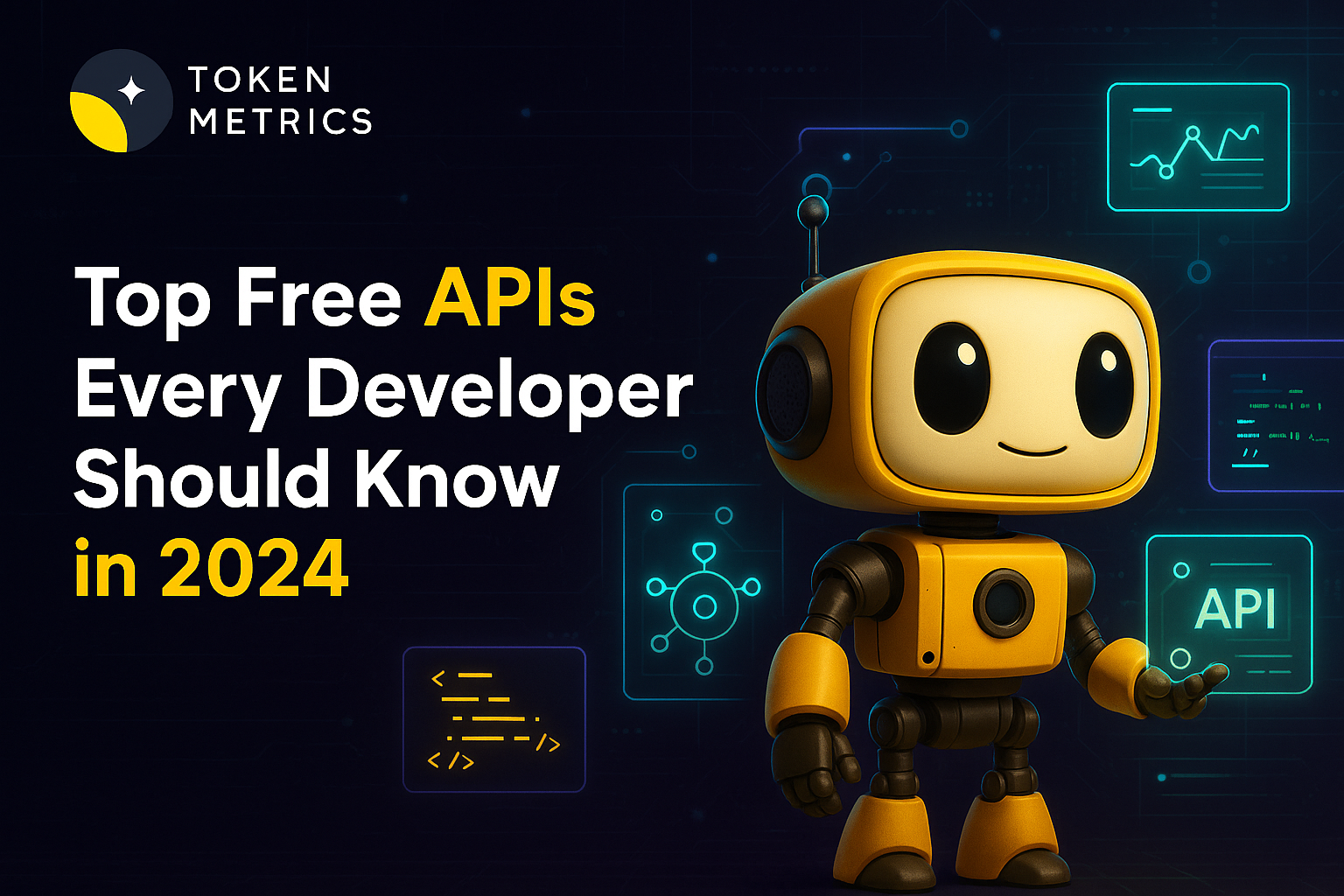

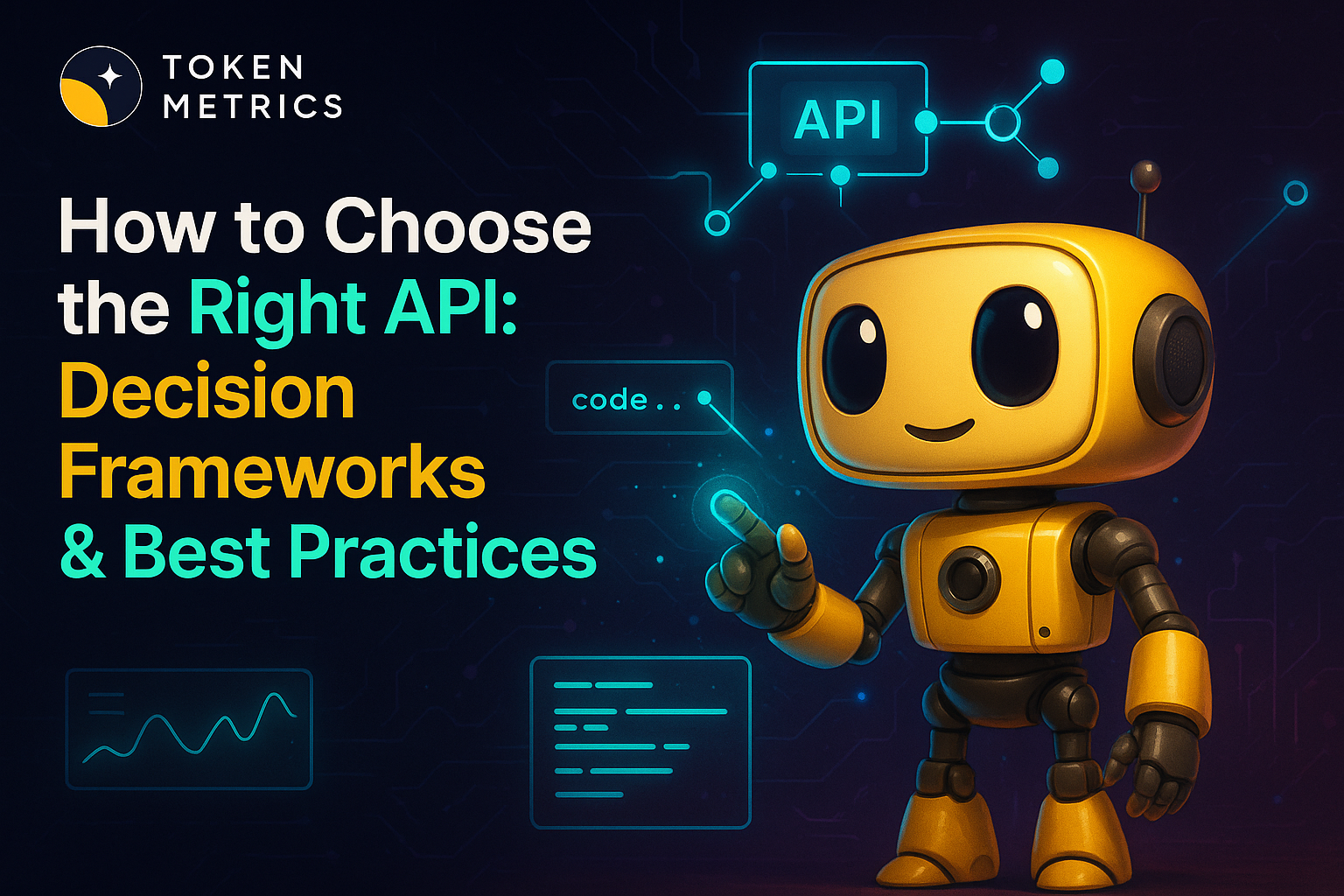
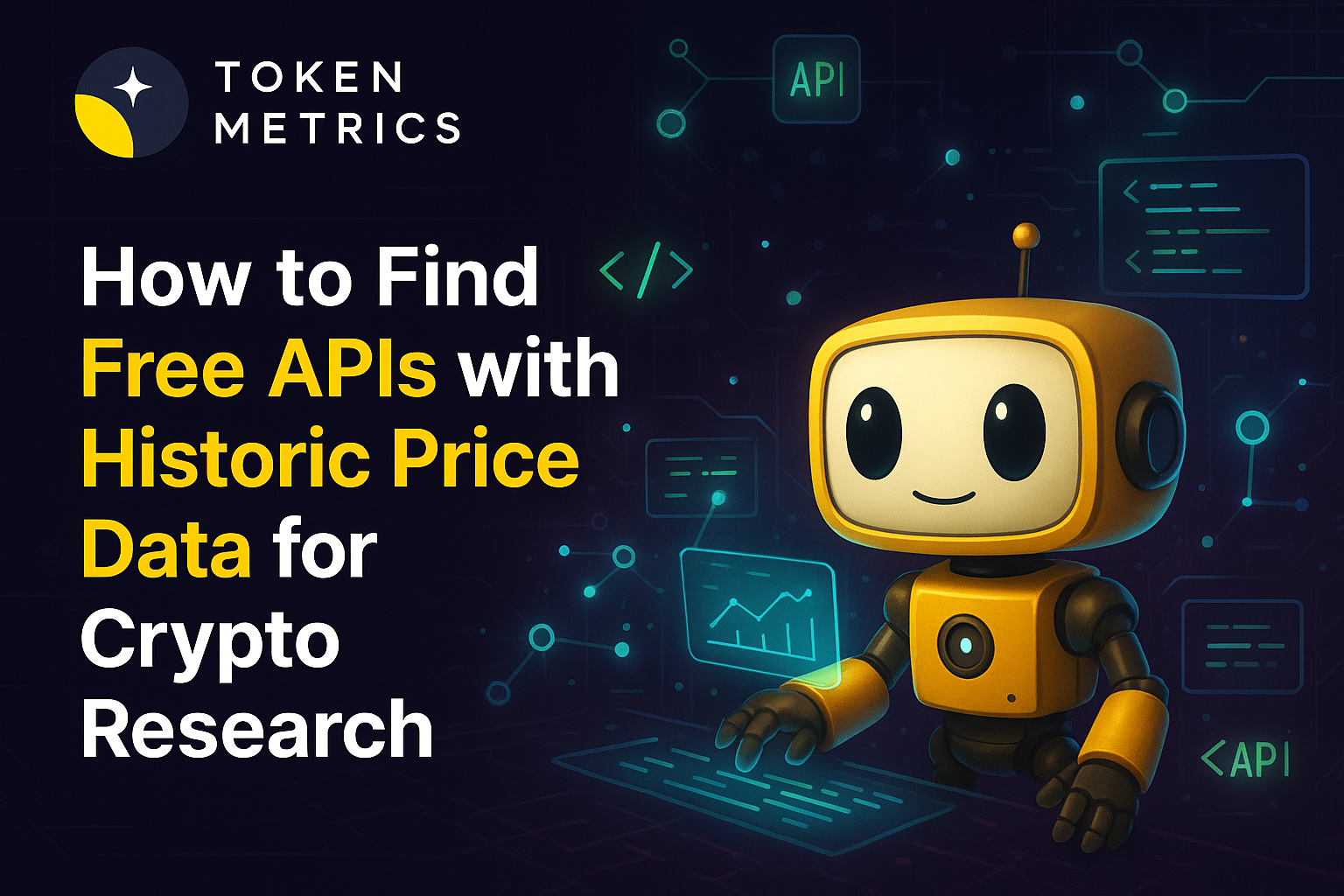
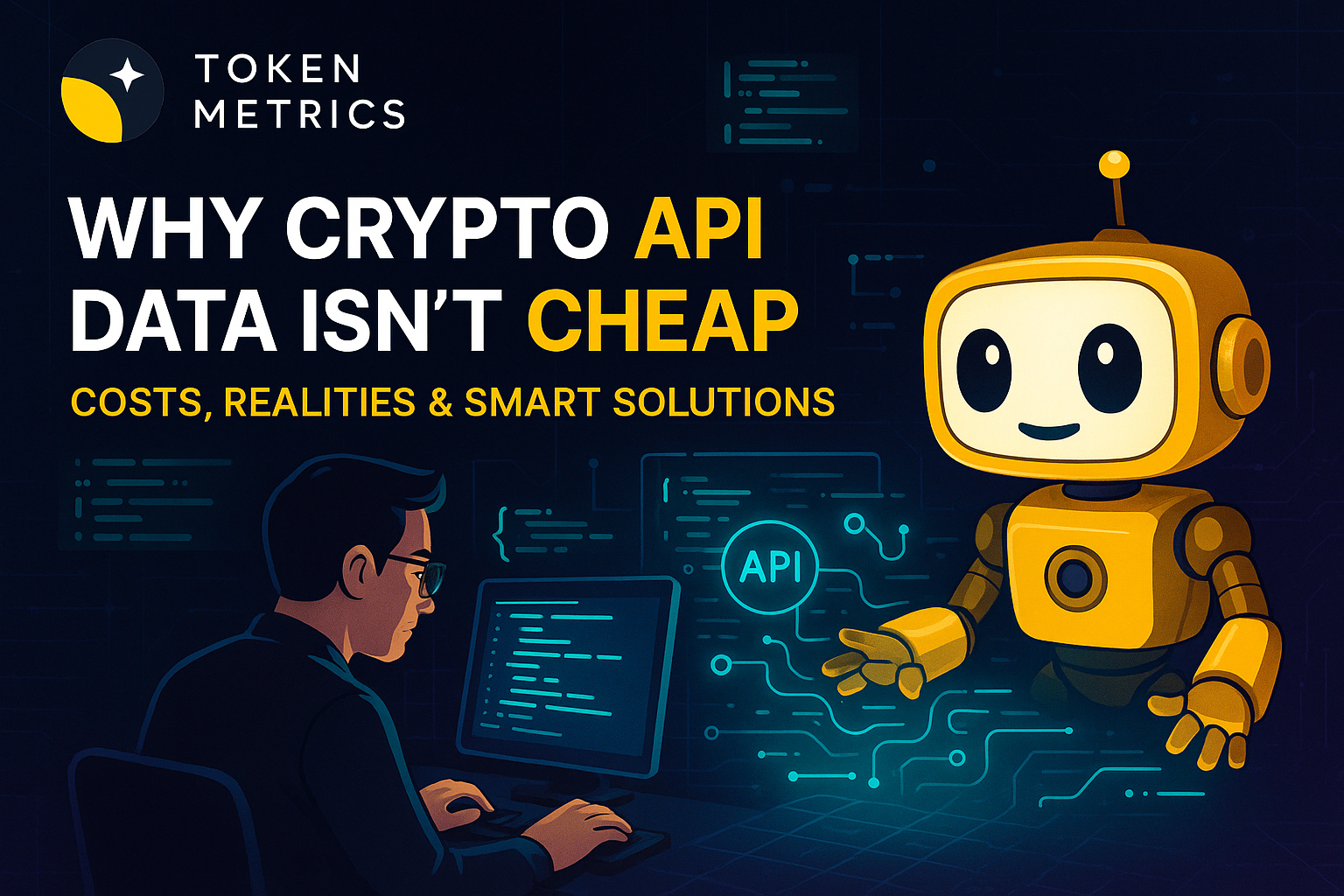
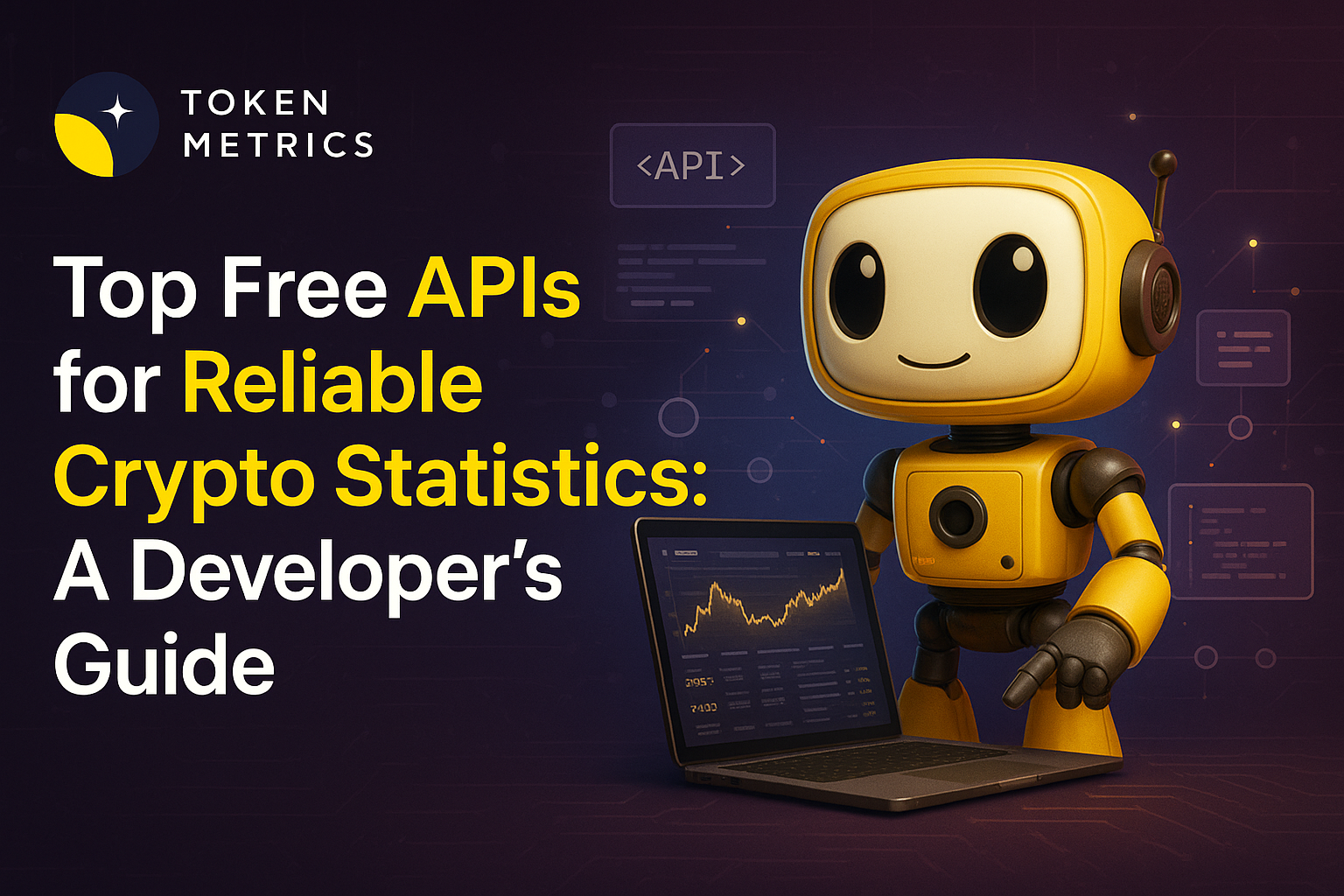

.svg)




.png)